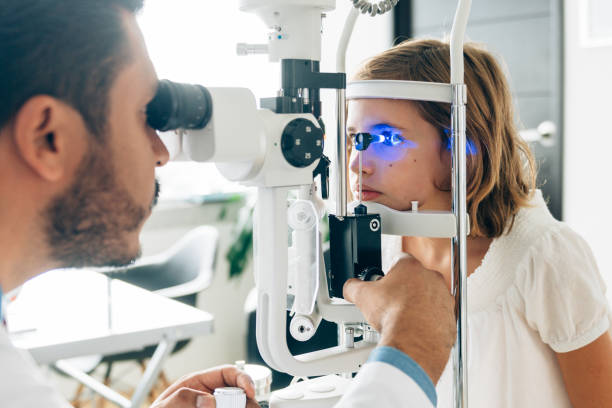Optometrist Vs Ophthalmologist
Optometrists and ophthalmologists are the two main types of eye doctors. Confused about what they do? Here’s what you need to know.
Ophthalmologists: What Is Their Role?
An ophthalmologist is a medical doctor who specializes in treating complex eye conditions through surgery or other means.
Normally, ophthalmologists complete medical school, an internship of one year, a residency of three years, and a fellowship of one to two years.
Among the services offered by these eye doctors are:
-
Services related to vision, including eye examinations
-
Treatment of conditions such as glaucoma, iritis, and chemical burns through medical eye care
-
Surgical care for eye problems such as trauma, crossed eyes, cataracts, glaucoma, and others
-
Eye conditions associated with other diseases, such as diabetes or arthritis, and their diagnosis and treatment
-
Raising droopy eyelids or smoothing wrinkles with plastic surgery
There are several specialties within ophthalmology, including:
Pediatric ophthalmology. These doctors specialize in treating children with eye problems. They are able to perform surgery on children who have crossed eyes or cataracts. Among other issues they can treat are retinal damage caused by early births and inflammation that may result in vision loss.
Neuro-ophthalmology. This type of doctor specializes in eye problems caused by problems with your brain or optic nerve, including drooping eyes, uncontrolled blinking, migraines, and eyelid spasms.
Oncologists who specialize in the diagnosis and treatment of cancers affecting the eye, the eyelid, and the eye socket are called ocular oncologists.
Optometrists: What Is Their Role?
An optometrist provides regular vision care, as well as primary eye health care. After college, they attend a professional program for four years and obtain a doctor of optometry degree. However, they do not attend medical school. Some optometrists pursue additional clinical training or pursue specialty fellowships after completing optometry school.
-
Examine and test the vision of the patient
-
Prescribe and fit contact lenses and eyeglasses
-
Monitor eye conditions associated with diseases such as diabetes
-
Managing and treating conditions such as dry eye and glaucoma
-
Providing low-vision aids and vision therapy
Optometrists have a variety of specialties. These include:
Children’s optometry. These practitioners specialize in testing the vision of babies, toddlers, and children using special procedures.
Neuro-optometry. This type of optometrist may be consulted by individuals who have had vision problems as a result of traumatic brain injury.
Optometry for low vision patients. A low-vision optometrist can provide you with devices and strategies that may improve your quality of life if you have low vision, which means you cannot perform your daily activities and your sight cannot be corrected by glasses, contact lenses, medicine, or surgery.
Ophthalmologist vs. Optometrist
An optometrist and an ophthalmologist may be involved in your eye care.
Optometrists can prescribe glasses or contact lenses as well as perform regular eye exams. When you visit your optometrist, they may identify signs of a more complex eye disease, such as cataracts. In the event of an eye condition requiring medicine or surgery, they will refer you to an ophthalmologist.
If you prefer to see a doctor for routine eye care, you may also be able to have an eye exam and vision correction performed by an ophthalmologist.
What Is an Optician?
Unlike eye doctors, optometrists do not perform eye examinations. They receive a one or two-year degree, certificate, or diploma. They fill prescriptions for glasses or contact lenses.
-
Verify the prescription of your lenses
-
Provide glasses, frames, and contact lenses for adjustment, repair, and replacement
-
Take measurements of your face
-
Determine the type of lenses and frames that will work best for you
-
Check and order products, including contacts and eyeglass lenses
What to look for in an eye doctor
A particular type of eye doctor is not necessarily better than another. The best eye doctor for you depends on the conditions you are experiencing.
-
Doctor’s recommendation, friend’s recommendation, or family recommendation
-
Someone you trust and like
In general, you should follow these guidelines:
-
Generally, you should consult an optometrist for primary eye care. If necessary, they will recommend an ophthalmologist
-
In the event that you are considering eye surgery because of cataracts, glaucoma, or other eye conditions, an ophthalmologist with the appropriate specialty would be a good place to begin your search.
















